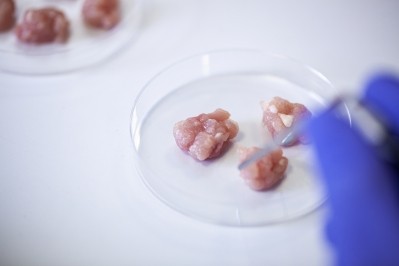News
Cultivated meat project secures half a million-pound grant

A trio of North-East-based businesses – the Centre for Process Innovation (CPI), MarraBio and Aelius Biotech – have been awarded the grant from Innovate UK to develop low emission food production systems at a lower cost than is currently possible.
The project aims to use engineered protein materials produced by MarraBio which may come to replace more expensive materials currently being used in larger scale productions for cultivated meat at a significantly reduced cost.
Work on the project will take place at the recently established Novel Food Innovation Centre in Wilton, Redcar, with an expected completion date of December 2024.
North East hub
CPI biologics director Brendan Fish said: “We are delighted to be working with MarraBio and Aelius Biotech on this exciting project. It’s another step towards establishing the North East as the UK’s hub for greener food production systems.
“Food production is a significant contributor to greenhouse gas emissions in the UK. Ensuring a sustainable food industry that is fit for the future is a challenge we know we must act on now if we are going to reach our ambition of becoming ‘Net Zero’.”
Funding for this new research comes as claims that cultivated meat products produce less greenhouse gases than traditional agriculture become more and more prominent.
Last month, Ida Svensson, transformation manager for new food at Tetra Pak, discussed how 'new food' alternatives can reduce global reliance on agricultural production.
Willing to try cultivated meat
A recent Food Standards Agency study highlighted 32% of people in the UK were willing to try it, making cheaper food production systems essential.
Dr. Daniel Peters, chief executive at MarraBio, added: “We are very excited to be working with CPI and Aelius Biotech on this project to help improve our ability to manufacture these materials at high quality and low cost, with the aim of accelerating cultivated meat development.
“It’s great to be able to establish this new collaboration in the North East and to play a role in helping to reduce the carbon emissions associated with food production.”
Meanwhile, the UK Government is investing £12m in an alternative protein research centre focused on fermentation-based foods.

















